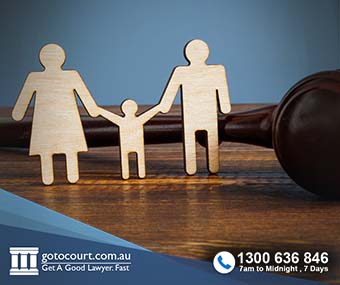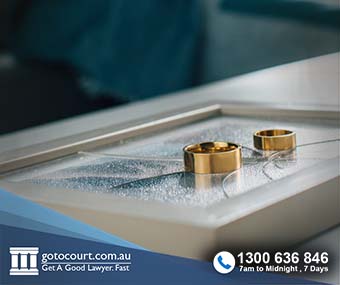Call our lawyers
now
or,
have our lawyers
call you
Family Dispute Resolution
Updated on Jan 06, 2023 • 6 min read • 741 views • Copy Link
Family Dispute Resolution
Under the Family Law Act 1975, a person wanting to file an application for parenting orders or financial orders must first attempt to resolve their matter through Family Dispute Resolution (FDR). This is so that all family law disputes that are capable of being resolved informally are kept out of the court system. This saves parties time and money and avoids overburdening the courts with matters that can be dealt with elsewhere. This page deals with Family Dispute Resolution in Australia.
What is Family Dispute Resolution?
Family Dispute Resolution includes services such as mediation that help people to try to sort out family law disputes outside of court. FDR can help people to resolve disagreements about property, money, and children.
An FDR practitioner’s job is to assist parties to discuss issues and work through all their options to reach an agreement that is acceptable to everyone. Before an FDR session begins, the practitioner will assess whether the matter is suitable for FDR and tell the parties about the process, their rights, the practitioner’s qualifications, and the fees to be charged.
FDR practitioners are impartial.
Where is Family Dispute Resolution conducted?
Parties can participate in Family Dispute Resolution in a number of ways.
FDR can be conducted at the Federal Circuit and Family Court of Australia (FCFCA). When this occurs, a judicial registrar who is an FDR practitioner will conduct the FDR. An agreement reached in this way can be formalised and made into binding court orders.
FDR is also conducted through Family Relationship Centres. These sessions provide one hour of FDR free of charge and charge $30 per hour for the second and third hour for parties whoa re earning over $50,000 per annum.
There are also various private providers of FDR services.
A register of all Australian FDR practitioners is maintained by the Attorney-General’s Department.
FDR is confidential
Everything that is said during a Family Law Mediation is confidential. This means that nothing that is said during FDR can be used in court. There are, however, some exceptions to confidentiality in exceptional circumstances, such as where there has been a threat to someone’s life or health, or information has been disclosed regarding the commission of a crime. In these situations, information disclosed during FDR may have to be shared with authorities.
Support persons
Both parties must attend the FDR session, although where it is appropriate arrangements may be made for one or both parties to attend by phone, or for the FDR practitioner to speak to the parties in separate rooms, rather than everyone being together in the same room. If there are no objections, parties can have a support person present. If you would like your lawyer to also be present, you should discuss this with the centre arranging the mediation as it is not always allowed.
FDR certificates
If you don’t attend FDR, or if you do not make a genuine effort to reach an agreement at FDR, this can affect when your court application is listed. You may also be ordered to pay the other person’s legal costs.
You will be given a certificate confirming that you have attended FDR. This certificate should be filed in court along with your application and supporting material. You will need this certificate even if you already have family law orders but want them changed.
Your FDR certificate will say either:
- That the other party did not attend
- That both attended and made a real effort to settle the dispute
- That both attended but one or both parties did not make a real effort to settle the dispute
- That the matter is not suitable for FDR
- That the FDR practitioner decided it was inappropriate to continue with FDR after starting the session
FDR certificate exemptions
In some situations, a party may be able to obtain an exemption from taking part in Family Dispute Resolution. If an exemption is granted, an application can be filed with the court without the parties attempting to resolve the matter through mediation first. Exemptions are given in situations where FDR is unlikely to be helpful or where the matter requires an urgent determination.
An exemption may be given where:
- parties are applying for consent orders
- the matter is urgent, such as a parenting matter where the children are in danger
- where there is, or has been, family violence or child abuse
- where one or both parties cannot participate effectively in FDR (perhaps due to incapacity or where they live), or
- a party has breached a court order made in the last 12 months.
A party seeking to claim exemption from FDR will need to provide evidence that one of the exceptions applies. This may be done through the party’s own evidence set out in an affidavit, or by evidence from another person.
Parenting plans
If you reach agreement during FDR on arrangements for your children, you can put together a parenting plan. This must be dated and signed by both parents.
A parenting plan can include procedures to change arrangements and resolve any disagreements in future and can be renegotiated at any time.
Parties can agree to change a current court parenting order by entering into a parenting plan (unless the court has ordered otherwise).
There are special rules if parties want to include child support in their parenting plan. Agreements about child support set out in this way are not legally enforceable. If you want to be able to enforce an agreement about child support, you can apply to the court for a consent order.
Consent Orders
Parties can prepare consent orders themselves or ask their lawyers to do this. An application for consent orders is filed with the court for approval. Consent orders can cover parenting arrangements as well as financial arrangements. Consent orders have the same legal force as if they had been made by the court after a hearing.
Parties should seek legal advice before signing consent orders.
If you require legal advice or representation in any legal matter, please contact Go To Court Lawyers.

Affordable Lawyers
Our Go To Court Lawyers will assist you in all areas of law. We specialise in providing legal advice urgently – at the time when you need it most. If you need a lawyer right now, today, we can help you – no matter where you are in Australia.How It Works







1. You speak directly to a lawyer
When you call the Go To Court Legal Hotline, you will be connected directly to a lawyer, every time.


2. Get your legal situation assessed
We determine the best way forward in your legal matter, free of charge. If you want to go ahead and book a face-to-face appointment, we will connect you with a specialist in your local area.


3. We arrange everything as needed
If you want to go ahead and book a fact-to-face appointment, we will connect you with a specialist in your local area no matter where you are and even at very short notice.




















